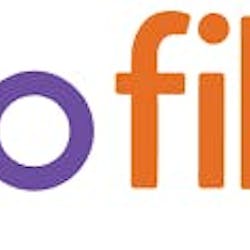Gigabit Internet service is on the rise, as evidenced by Viavi Solutions' (NASDAQ:VIAV) recent update of its online Gigabit Monitor. Analysis of deployments indicate that 219 million people globally now have gigabit Internet available to them, equating to roughly 3% of the global population. There are currently 603 gigabit Internet implementations, up 72% from last June.
The United States has the highest number of people with access to gigabit Internet (56.4 million) with a population coverage of 17%. Singapore currently has the highest proportion of citizens with gigabit Internet availability at 95%.
In the United States, there has been a rising tide of DOCSIS 3.1 deployments. Among tier 1 operators, Comcast (NASDAQ:CMCSA) has made a big push with the technology in several markets. It recently launched gigabit Internet service based on DOCSIS 3.1 throughout Colorado, its Oregon/SW Washington region and the company's suburban Kansas City, MO, and Olathe, KS, service areas. Since field trials in Philadelphia and Atlanta at the end of 2015, Comcast has deployed DOCSIS 3.1-based gigabit Internet service in several markets, including Detroit, Chicago, Nashville, Atlanta, Miami and several others.
During the first half of 2017, Cable ONE (NYSE:CABO) added gigabit in several markets, including Bartlesville and Ponca City, OK; Roswell, NM; and Biloxi, Gulfport, and Brookhaven and McComb, MS. Cable ONE's gigabit service is based on DOCSIS 3.0.
Mediacom Communications recently began launching gigabit Internet based on DOCSIS 3.1 within its Illinois service territory. The deployment will begin with 275 small cities and towns, with an additional 70 communities slated launch in the next two months. Mediacom is using a mix of CCAP gear from Cisco (NASDAQ:CSCO) and Casa Systems and modems from Technicolor and Hitron. The operator already has launched gigabit services in more than 800 communities, including southwest Georgia and the rural southern part of Minnesota. In conjunction, the company also is introducing a new 500 Mbps service. Additional rollouts will depend, in part, on modem availability.
Midco also brought gigabit to Minnesota recently, announcing the launch of its Xstream Gig offering in northern Minnesota. Specifically, the service is available in Bemidji and nine surrounding communities. As of May, more than 50% of Midco's customers had access to Xstream Gig. In addition to Minnesota, the company also is offering it in Rapid City and Sioux Falls, SD, and Grand Forks and Fargo, ND. Midco's goal for the year is to deploy DOCSIS 3.1 gigabit in 80% of its markets. Early deployments are based on Cisco cBR-8 CCAP gear and modems from ARRIS (NASDAQ:ARRS) and Hitron Technologies.
RCN launched DOCSIS 3.1-based gigabit Internet in the Boston metro area in March. The service costs $69.99 per month and requires no contract. RCN also offers gigabit service in Chicago, New York, Washington DC, Philadelphia and Evanston, IL.
MaxxSouth is providing FTTH-based gigabit Internet service in the areas surrounding Starkville, MS. Highland Plantation is a planned residential student community consisting of more than 225 rental properties in 600 acres of land close by Mississippi State University. The company also has FTTH networks in Oxford and Carthage, MS, which launched in 2016 and 2014, respectively. MaxxSouth is a subsidiary of Block Communications, which also owns Ohio-based cable operator Buckeye Broadband.
CenturyLink (NYSE:CTL) says it can provide "fiber-ready" gigabit broadband services to more than 13,000 small-to-large business customers in 1,150 multi-tenant unit office buildings in Utah. The carrier will complement the symmetrical gigabit Internet offering with VoIP, cloud-based services and managed IT services.
Packerland Broadband has deployed gigabit Internet service based on DOCSIS 3.1 in Crystal Falls, MI, which is in Michigan's Upper Peninsula. Packerland worked with systems integrator CCI Systems to design and deploy the gigabit service, dubbed UltraConnect. The service uses Cisco's cBR-8 CCAP and Technicolor's TC4400 modems.
Rogers Communications (TSX:RCI.A) announced a three-year pilot program at 20 Toronto District School Board (TDSB) locations to bring students Rogers Ignite Gigabit Internet, a DOCSIS 3.1-based service, with unlimited data and at no cost.
Altice USA is offering Suddenlink gigabit Internet service in the Kingston, NC, market, including the city of Kinston, Lenoir and Wayne Counties as well Lagrange and Walnut Creek in eastern North Carolina. The company has also increased other residential Internet speeds for existing customers. Download speeds in the Kinston area are now 50, 100, 200, and 400 Mbps and 1 Gbps. The upgrades are part of Operation GigaSpeed, which Suddenlink started in 2014 with the goal of providing gigabit services in 90 percent of its markets by the end of 2017. Altice bought Suddenlink in 2015 and has continued to support the project with numerous gigabit launches, 40+ at last count. The service is based on DOCSIS 3.0 in most markets, though a few deployments have used fiber-to-the home (FTTH).
Independent Internet service provider (ISP) Sonic plans to expand its San Francisco metro area Gigabit Fiber service to include the Mission District and surrounding neighborhoods. The buildout will begin in the southern portion of the Mission district and expand to the surrounding communities of Noe Valley, The Castro, Dolores Heights, Glen Park, Potero Hill and Sunnyside. Once the fiber network deployment is complete, Sonic will offer uncapped Gigabit Fiber Internet services as well as international home phone service starting at $40 per month.
AT&T (NYSE:T) has plans to reach 12.5 million locations in 67 metro areas with its fiber network by mid-2019. Recently the company launched AT&T Fiber gigabit-capable Internet in parts of the Milwaukee metro area.
And Verizon has introduced Fios Gigabit Connection and made the service available to 8 million homes. The carrier enhanced Fios Instant Internet service with firmware and diagnostic tools to increase service performance. In a node to truth in advertising, Verizon said the service will provide up to 940 Mbps downstream and up to 880 Mbps upstream. Subscribers will have the option to pay $69.00 per month for a standalone service. Bundled packages start at $79.99 per month for the first year, and $84.00 per month for the second year.





